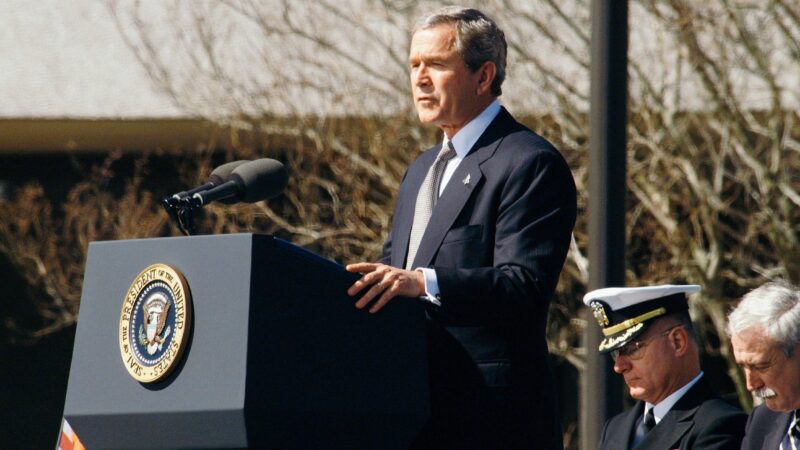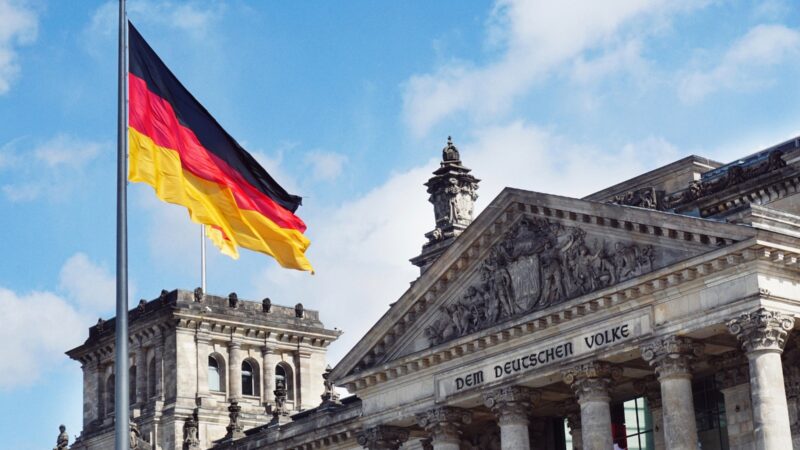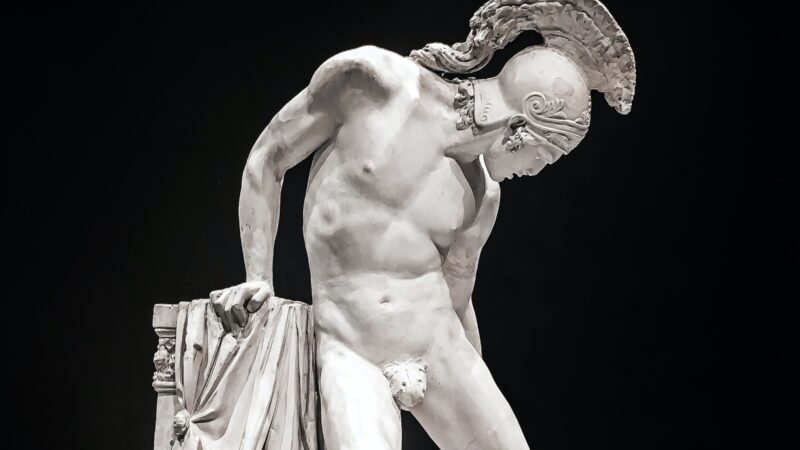A Quasi-Defence of Classical British Education
A couple of weeks ago, enough to make this piece seem dated, our Prime Minister Rishi Sunak contended that all students should be taught mathematics to the age of eighteen. As one would expect with anyone holding a convicted belief in anything these days, such remarks were held to scant regard and I suspect that like most Toryism of the modern day, that with conviction with give way to that with expedience and this policy will be dropped by the waysides at the slightest pushback in parliament.
However, the criticism that has spawned from this rare moment of genuine conviction from our prime minister is probably far more interesting than his own aspirations of what would have manifest.
As a sidenote, I expect that should this compulsory maths to 18 intention go through, what will likely happen is that the ever-beleaguered adolescent must now come to grips with the ire of all office workers: Microsoft Excel, only too early for their time. It is infeasible in the least that people who struggled to get a 4 in their foundation papers for GCSE maths could go on to study integrals. Maths is unlike other subjects in that one must have a command of the knowledge foundational to the next level, it is not a matter like in history, of switching periods or method of analysis to an area you may find more interesting. There are limits for everyone be it in wit or will. I, much like everyone else reading this article, is likely aware of our own maths limitations, it’s all too human.
But the furore about what should be taught instead of maths, or anything else for that matter, is as I’ve already said far more interesting. Of course, the first conviction of the modern vision of education, a cookie-cutter idea of turning an innocent child into the taxpaying office worker to satisfy the top-heavy pension-state is very tempting. In a world of material, the person is personified by their work, after all. Teach people about taxes! Teach them about compound interest! Teach them how to start their own businesses! Teach them about how to tie their shoes! Et cetera, et cetera.
For someone however who normally takes a very technical view towards things, I’d like to take a moment to defend the British style of education in which people choose their A Levels and focus on honing their skills in a certain area, be it in humanities or technology, as opposed to being taught what the education cynics would prefer people learnt, which is essentially accounting 101 or what the cabinet desire, learn all the maths possible until your brain turns into C++ code.
In the first place, can we please clear up the idea that education is only, or even primarily about getting people ready for work? If you are leaving school at eighteen (good choice by the way) your job is likely going to have nothing to do with what you studied, nor has it ever been like this. The two original skills we most valued in school, maths and English, were primarily about getting people up and ready to learn information by themselves. Economists do not use a “can do their own taxes” rate when measuring educational development, they measure either literacy or time in school. Most people do not learn about their own job, or about their hobby because they were taught in school. For the degree educated among us and who retain passion for their subject, how much do you really owe your subject knowledge to the university instruction and how much to your own passion and research?
Education is, no matter how wearily and poorly it does it these days, a matter of getting people to learn things for themselves and maintain some level of function in society. Before the SNP took charge of Scotland, most state schools still taught Latin and Scotland retained a reputation as one of the premier education systems of the world (that has been dashed, you may finger point at whodunnit somewhere else). No, I’m not saying Latin is what makes a good education, but I don’t think it’s useless either if people are willing to learn it and be passionate about it.
I’m not going to pretend that a society in which everyone is a “critical thinker”, or “free thinking” Twitter user is either realistic or good. The reality is that humans are by and large not critical thinkers. But I think there is something to be said of the idea that education is not about doing your taxes (have these people never heard of PAYE?) but about rounding yourself out cognitively and figuring out who you are amongst peers.
Some of the greatest in British history studied what many would consider ‘useless’ in modern standards. The traditional British education was to go to Oxford or Cambridge and study classics or the law, after which one could study whatever one wanted, or indeed get a premium job in the civil service. All this was during the period of time in which British innovation was the envy of the world. I struggle to see how if more children were taught the properties of triangles during the 1840’s how the Industrial Revolution could have been anymore revolutionary.
I think the likely final avenue here of discussion is the frequently cited immense rise of Asian cognition in the economic space and the pre-eminence of the Chinese and Japanese companies and workers in the tech sphere. To be frank I do not think either that the rising ability of these nations need pose any threat to us in this country unless we decide it does. Liz Truss reportedly after a visit to China thought we all needed to study more maths and I’ll admit, the Chinese mathematics curriculum is terrifying. Calculus in many parts of China is taught as young as twelve, but that alone need not merit fear from anyone. Firstly, China’s economic coming dominance is vastly overstated by their own figures, but more importantly an economy isn’t just data scientists and modellers. Have people ever stopped to think that maybe too many mathematicians is also a bad thing? The most fundamental feature of all economies, the ability to produce food and water, is almost never going to feature maths beyond that which we use in Excel. Nor for that matter do most electricians, plumbers, journalists, chefs, manufacturers, technicians or even IT workers need to know how to find an eigenvector.
Our other example, Japan, is perhaps an even more damning verdict of teaching a high number of students to eighteen mathematics than the former. Japan is a great country and I have little bad to say about them as a culture, but their economy has not been saved by maths being taught to eighteen. If you think the UK productivity figures are bad than Japan’s are lamentable. Japan lags the rest of the west in productivity despite a highly technical education. In spite of this 85% of Japanese Students will take maths to eighteen with math PISA scores that dominate the free world.
It is hard to assess the economic impact, let alone geopolitical impact of teaching everyone maths. But I’m comfortable in saying that if China or Japan are our examples of high-level STEM education, I’m not going to tie myself in knots. Britain’s productivity issue probably lies elsewhere.
I’m not attempting to be biased here, I myself have studied two different STEM subjects at higher education, but for me it seems expertise and skill is unlikely to be unearthed by your schooling. In my view then, don’t make the poor children study maths or accounting; adolescence is a strain unto itself. Let people pick their own interests, and the chips fall where they may.







A Response to Polly Toynbee
“Know thyself” is a most fundamental axiom of Greek philosophy that has been repeated into cliche in philosophy and religious studies classrooms around the world. And yet it is a concept that many seem to forget. To ignore our fundamental presuppositions and the grounding of our beliefs is foolish and to unwittingly seek to undercut them is ideological suicide.
These thoughts follow my reading of Polly Toynbee’s recent article in the Guardian which seeks to essentially de-Christianise Christmas celebrations and throws around the terms ‘cultural Christianity’ and ‘humanism’ as a way to legitimise her thoroughly anti-Christian position as some kind of reasonable middle ground/self-critique. A contradiction for sure, as she lampoons the foundations of Christian belief and excoriates the actions of early Christians. If we attached power cables to Friedrich Nietzsche’s grave, his rolling would probably solve the present energy crisis our country is currently undergoing.
Cultural Christianity, at the very least, demands an adoption of Christian morality and admiration for Christian tradition and history that is ridiculous to maintain in lieu of actual religious belief and makes me wonder why one doesn’t go all the way to believe in God too. Perhaps we consider the morality of ‘love thy neighbour’ as not necessarily an exclusively Christian belief but the very mindset that the European and American lives in are framed by Christianity – from the Protestant work ethic to our preference for monogamous relationships. Believing in the morality, mindset and general worldview of Christianity without its origin and basis, the teachings of Christ and the existence of God is vapid and naive. Why is marriage a sacred, inviolable contract if its primary advocate is not even real? (or dead).
This mindset is ultimately pointless and shallow and seeks to provide its own moral foundation with an appeal to some kind of tradition, popularity, or history – merely copying a greater tradition than itself. Ms Toynbee’s self-critical cultural Christianity is further called into question as nothing more than a veneer in her decidedly un-historical diagnosis of Christianity as anti-philosophical, anti-mathematical and anti-intellectual. The church is aware of its failings as a human institution, our own doctrine expects this and our scripture reminds us to be constantly vigilant against sin and our nature. Unfortunately, examples in history can be dragged into scrutiny to illustrate the failures of our forefathers. Maybe certain Popes and church leaders resisted the progress of science, or maybe the condemnations of 1277 sought to strangle ‘heretical’ elements of Aristotelianism out of medieval philosophy, but it isn’t appropriate to attribute particular mistakes by fallible humans to the wider religion. To do so is to be blinkered to what Christianity has provided and what it stands for.
Many of the greatest leaps in mathematics and science were accomplished by monotheists, algebra was pioneered and beautifully developed during the Golden Age of Islam and much of modern science owes its exposition and articulation to Christianity: Newtonian physics, Mendelian genetics and even the Big Bang Theory originate from Christian scholars. As for philosophy, while the discipline in the medieval period did develop in partnership with theology, the enlightenment saw the emergence of important secular thought among many Christian thinkers. For one example, Immanuel Kant, the father of modern philosophy, sought to use God to justify human freedom and escape relativism and nihilism; providing a philosophical framework that has shaped the European zeitgeist. There is a good case to be made that most Anglo-American philosophy that traces back to Hume is essentially a secularisation of the work of William of Occam; a Franciscan monk. Yes, certain Christians supported the barbaric practice of slavery but subsequent Christians spearheaded the abolitionist cause and rebuked their forebears. To accuse Christianity of being backwards because some nuns teaching children attempted to use theological themes to encourage good behaviour is intellectually immature. Ms Toynbee can chase caricatures and mistakes by certain people in order to try and hurry Christianity out the door as much as she wants but her arguments are largely rebutted by a cursory reading of history. There is no real correlation between Christianity and intellectual stagnation.
A point that is interestingly used to drive her case forward is to complain about the largely ceremonial title of Fidei Defensor, which our monarchs adopted as an ironic jest at the Papacy. It is a somewhat nickel and dime point to analyse the declaration of the Anglican church’s independence – remember that the monarch is also the (ceremonial) Supreme Governor of the CofE: a broadly ceremonial title. Surely then, in an institution that is allegedly racist and backward, we should be welcoming Charles’ declaration to defend all the faiths of all of his subjects even if he is styled with a ceremonial, historic title? Dwelling on the ‘the’ seems to be counter-productive. These nickel-and-dime points come across as the bread and butter of this article – We can see another example of these snipes in her discussion of assisted suicide. To say that life is sacred and that assisted suicide is a slippery slope somehow makes our elected officials dangerous radicals that are out of touch with the electorate. This polemic move is extremely dishonest. See the advancement of medically assisted suicide in Canada as an example of the practical risks associated with this policy.
Maybe this response article is also rising to the nickel and dime bait. The debate could rage forever, as glib anecdotes and controversies are thrown about to illustrate the evil of the ever-vengeful skydaddy and his charlatan prophet. But let’s not forget the message of Christmas in the Gospel – a message of love, hope and the salvation of mankind by God who loves His creation and wants nothing more than to reconcile our broken relationship.
Let’s remember that the secular values we associate with Christmas – family, reconciliation, joy, giving and altruism – stem from a message of divine love and peace with a promise to end human suffering. Ms Toynbee’s vision of a secular winter holiday is not possible without the Incarnation.
Photo Credit.